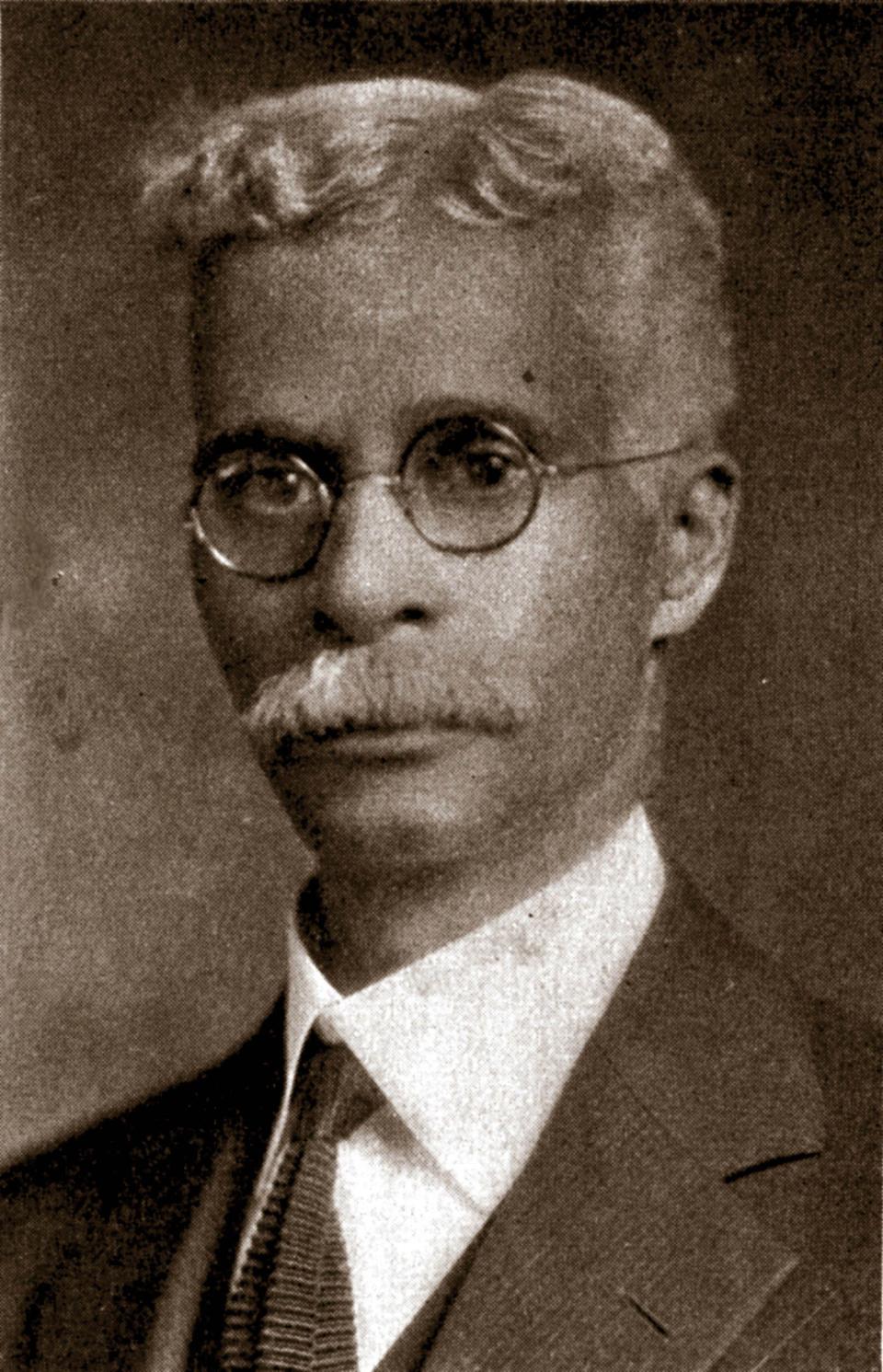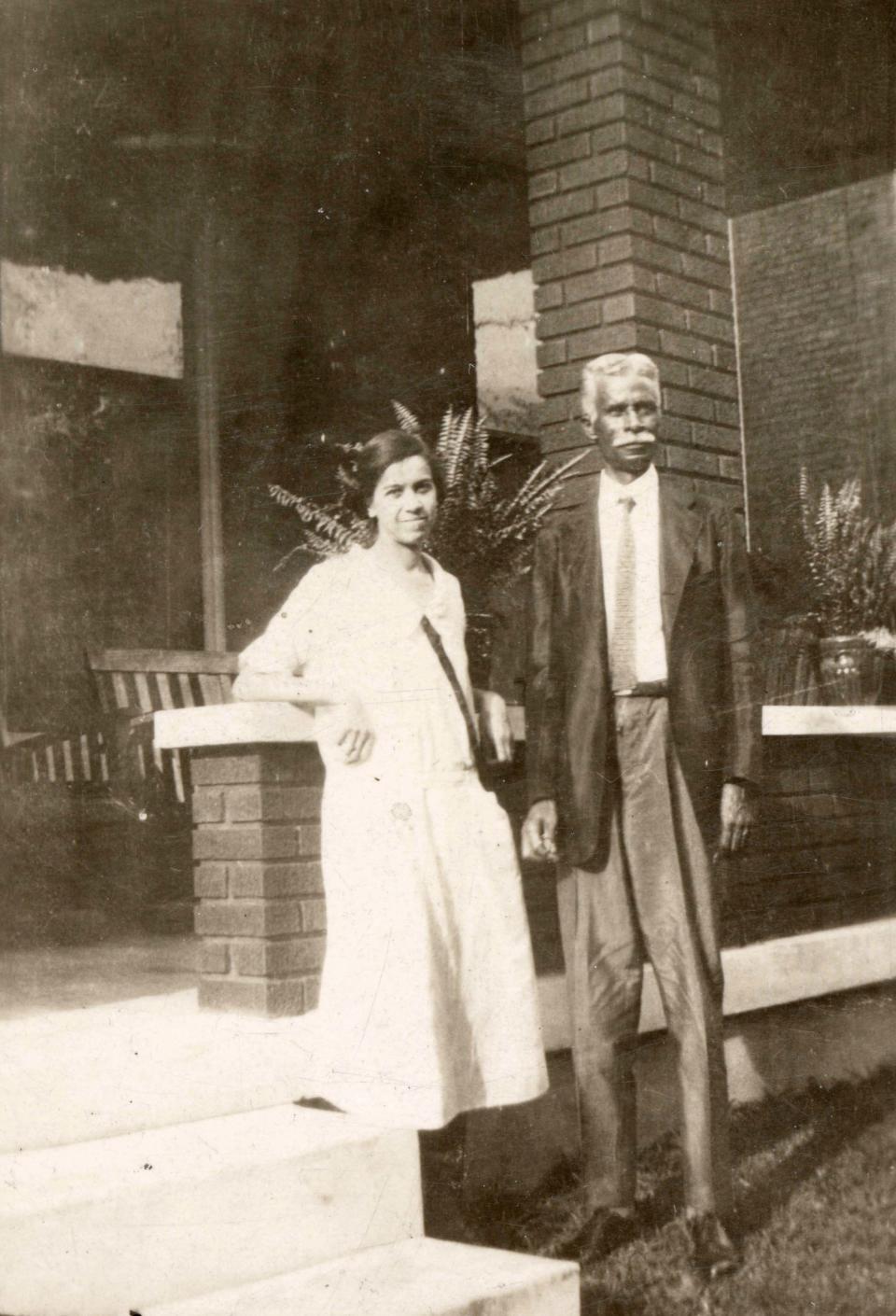How Western Library became the first free public library in the nation for Black Americans
- Oops!Something went wrong.Please try again later.
- Oops!Something went wrong.Please try again later.
Buried in an unmarked grave in Eastern Cemetery, adjacent to Cave Hill, lies a tall scholarly man from Farmville, Virginia, whose impact on our city cannot be overstated. Rev. Thomas Fountain Blue, the son of enslaved parents, was a minister, educator and barrier breaker who would go on to lead not only Louisville’s Western Branch Library but all library services dedicated to serving Louisville’s Black community.
In 1902, Louisville’s civic leaders and elected officials were busy laying the groundwork to establish the Louisville Free Public Library, but in the Jim Crow South, those efforts would only benefit white Louisvillians.
Thankfully, several African American leaders, led by Albert Meyzeek (Central High School Principal), wanted Black Louisvillians to have the same access and opportunities afforded by this new public library system. Through their tireless efforts, the Western Library opened in 1905 in a house at 1125 West Chestnut Street. Soon replaced in 1908 by a newly constructed Carnegie library at 10th and Chestnut, Western Library became the first free public library in the nation for African Americans staffed entirely by African Americans.
More: Reopened libraries to supporting kids: How Louisville plans to use next $87M in ARP funds

Rev. Blue was chosen to lead this new endeavor, which included training library personnel in the science of librarianship. At that time, there were no formal programs in library science available to African Americans, particularly in the South. So Blue established the first library training program for African Americans in the United States.
This groundbreaking program lasted into the 1930s and attracted students from across the region. Blue’s contributions to library science were recognized nationally, both during his lifetime and after.
First in 1922, when he was invited to present at the American Library Association’s annual conference (he was the first African American to be included on an ALA program). Then in 2003, when ALA honored him again by passing a resolution recognizing "the leadership role of Reverend Thomas Fountain Blue in laying the foundation for the continued presence of African American libraries, library students, and library employees in all types of libraries within the United States and abroad."
Rev. Blue died in 1935 and was buried in Eastern Cemetery alongside his wife Cornelia Johnson Blue. The 28-acre cemetery on Baxter Avenue made national news in 1989, when it was discovered that the reusing and reselling of burial plots had been a common practice at the facility for decades, along with other illegal practices. As a result, though the Blue family had purchased a headstone, one was never installed and the location of their graves was forgotten.
More: Why summertime is a great time to boost childhood literacy: Opinion

That might have been the end of the story. But through a partnership between Western Library and the Friends of Eastern Cemetery, a program series was developed, designed to highlight the historic, and sometimes forgotten, individuals buried in Eastern Cemetery.
The initial set of programs focused on figures from the Russell neighborhood—where Western is situated—and that ultimately led to the discovery of Rev. and Cornelia Blue’s final resting place. Now, thanks to funding from the Library Foundation, the Louisville Free Public Library, Lean Into Louisville, and the Frazier History Museum will dedicate a headstone honoring the legacy of Thomas Fountain Blue and his wife Cornelia Blue. A public unveiling with Mayor Greg Fischer and members of the Blue family will be held at Eastern Cemetery, on Saturday, July 16, at 1:30 p.m.
Rev. Blue’s passionate desire to provide equal access to ideas, information and education lives on today in Louisville, not just at his home branch of Western, but throughout the city at all 17 library locations. Library resources and civic-minded community partnerships strengthen our city and bring light to our shared history.
Rev. Thomas F. Blue served the Louisville Free Public Library for 30 years, his career a pinnacle in the field of public service. We are grateful to honor him with both this long overdue marker and with public libraries open and free to all. We invite you to come celebrate and share in his important legacy with us.
Natalie Woods is the Western Library Branch Manager. Paul Burns is the Communications Director for the Louisville Free Public Library.
This article originally appeared on Louisville Courier Journal: How Western Library became the first in the nation for Black Americans

